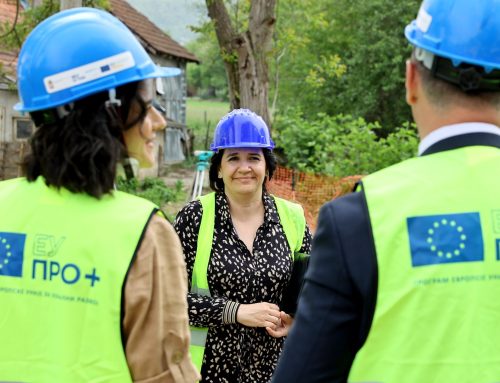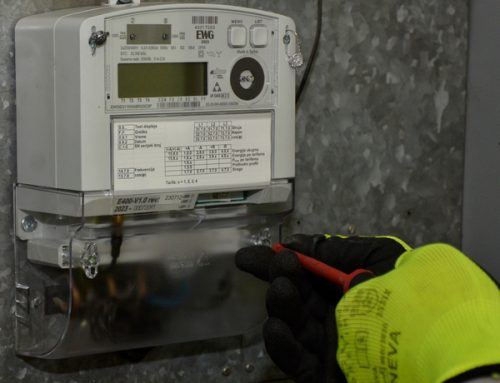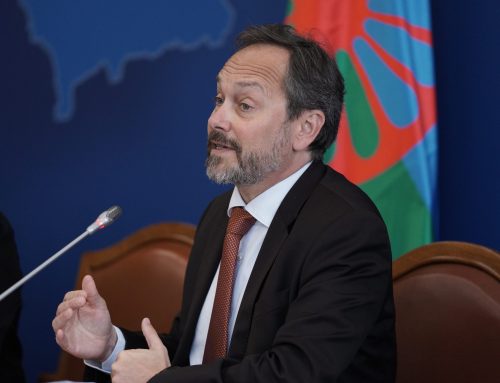Dacic pointed out that the progress report for Serbia that will be presented to the European Parliament on 16 January by Kacin will be the most positive so far. Kacin announced calling on Germany to declare Serbia a “safe country of origin”, so the procedure referring to returning false asylum seekers would not last long.
European Parliament special rapporteur for Serbia Jelko Kacin today assessed that it is time for Serbs in the North Kosovo to wise up and understand that they need to forms their local self-governments.
They should work for both, Serbia and themselves, and use every opportunity they have, Kacin said after the meeting with Prime Minister Ivica Dacic.
As he pointed out, Dacic had more than 20 negotiation meetings with Prime Minister of Kosovo Hashim Thaçi in Brussels, so it would be out of mind to think they are not capable to form their authorities.
Obstacles and solutinos
Why would they do all that if they do not care about being institutionalised and able to tackle own problems, Kacin asked.
Dacic said that working groups dealing with finding solutions to overcome problems related to constitution of four assemblies of municipalities in the North have the session in Brussels at the moment.
Continuation of dialogue with Pristina is a daily topic and a “nightmare”, because every topic is being politicised and you “constantly balance on a wire to be constructive” and to tackle occurring banalities, such as constitution of assemblies of municipalities, he pointed out.
He said that the deadline for the constitution of assemblies of municipalities in the North does not expire today, because “if they enter the process” there is time for extension of deadlines.
Dacic announced that the progress report for Serbia that will be presented to the European Parliament on 16 January by Kacin will be the most positive so far by its tone, scope and content and he expressed hope that it will be adopted by the vast majority of MP votes.
Formal beginning of negotiations
Dacic added that another important event for Serbia in this month is intergovernmental conference with the EU, which also marks the formal beginning of accession negotiations, and it should take place on 21 January at 9.00, according to information from Brussels.
We believe that it will be a historical event and the beginning of membership negotiations in operative and technical sense, for which we are seriously preparing, he said.
New meeting with Thaçi is not scheduled yet and it is not certain whether it will happen before the first intergovernmental conference.
Visible progress
Congratulating Serbian on the huge achieved progress, Kacin assessed that the country is getting to normal and that for citizens of Serbia that progress might not be visible due to difficult living conditions and problems they are facing, but it is visible for those who observe from outside.
That Serbia`s great progress is the engine of normalisation of the West Balkans and its accession to the EU, and that is precious, noticed Kacin who also characterised forthcoming intergovernmental conference as a historical event.
Speaking about the report that he will submit to the European Parliament, he
stressed that two amendments will be submitted at the session of that body,
along with praise on Serbia`s progress, in order to eliminate the possibility
of introducing visas due to large number of false asylum seekers.
Dual responsibility
He explained that Germany will be called to declare Serbia a “safe country of origin”, in order to change its mechanism and so that the procedure referring to returning false asylum seekers would not last long.
Not everything depends on Serbia and the other countries the false asylum seekers and criminals earning from the poor are coming from, the EU countries must do their share of the work, Kacin pointed out.
When asked if early parliamentary elections would slow down Serbia`s process of European integration, Kacin answered that the European Parliament will not interfere with the matter and is not allowed to do that.
As he underlined that in case the elections are held, European institutions will operate according to one scenario, and if not, according to other scenario.
Dacic repeated that the elections are a matter for parties and not the government.
The government has to work and cannot wait for the elections to be held or not, Dacic said.



